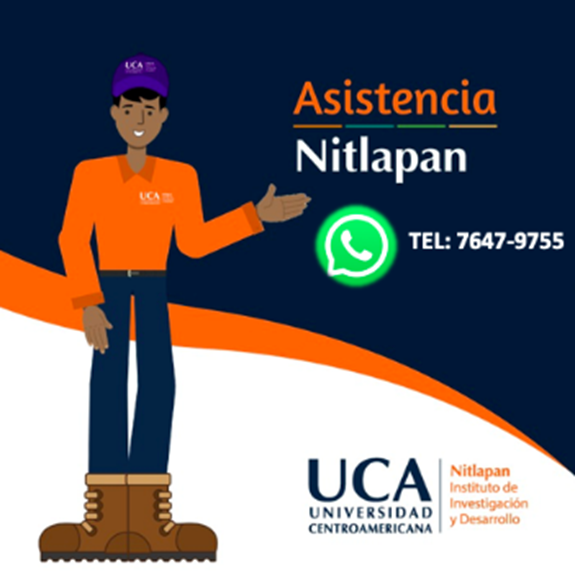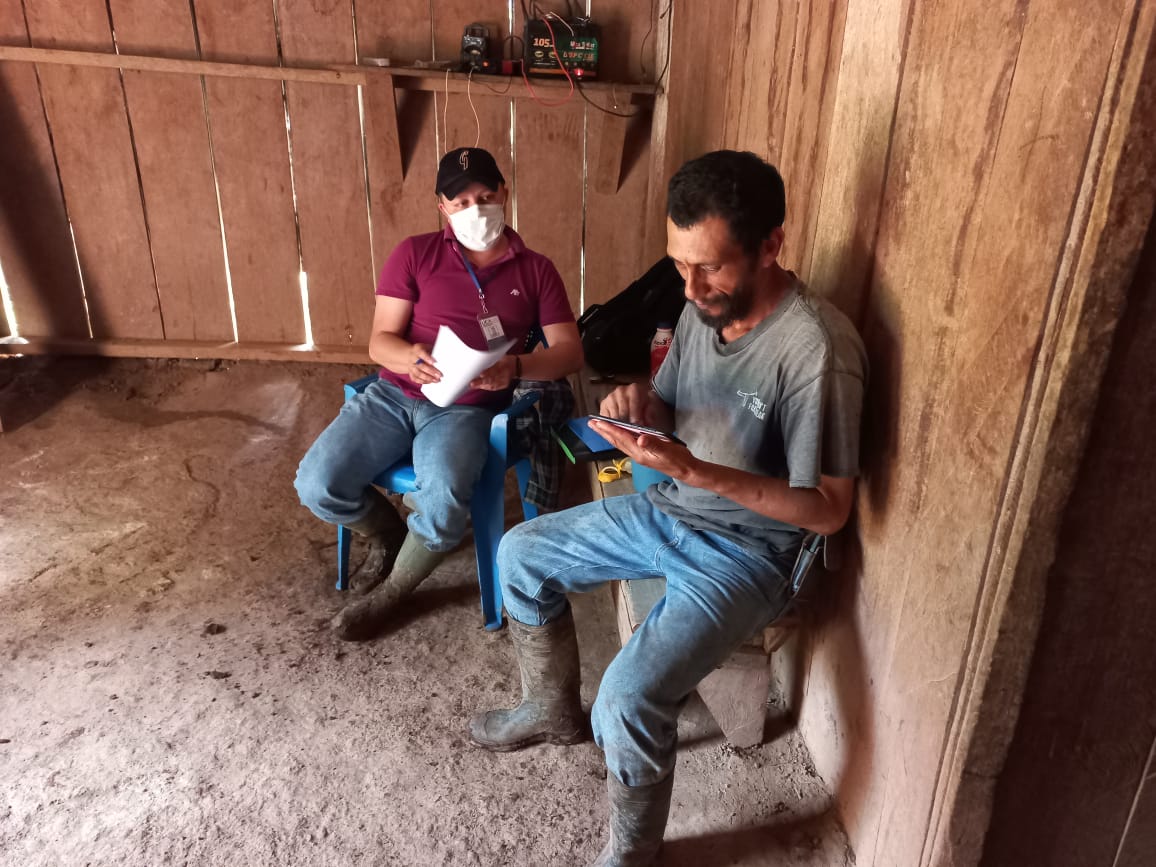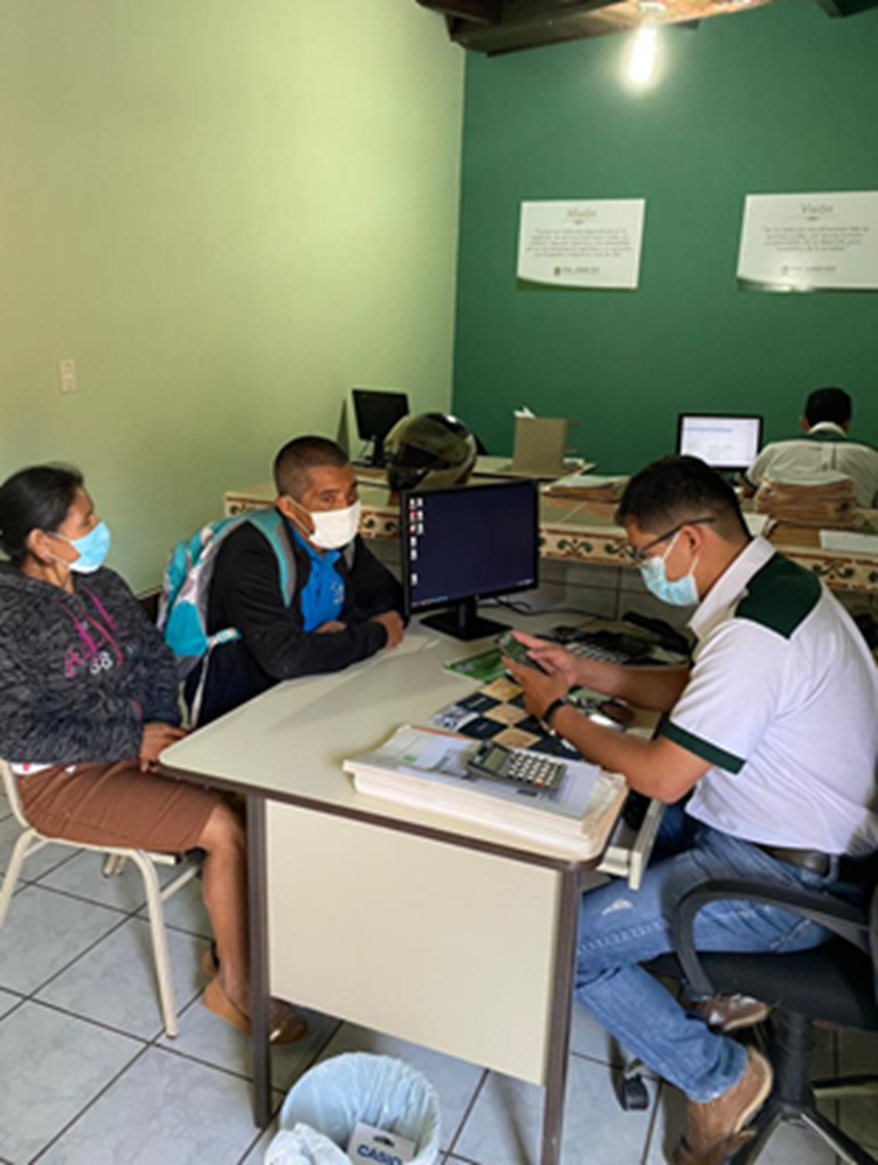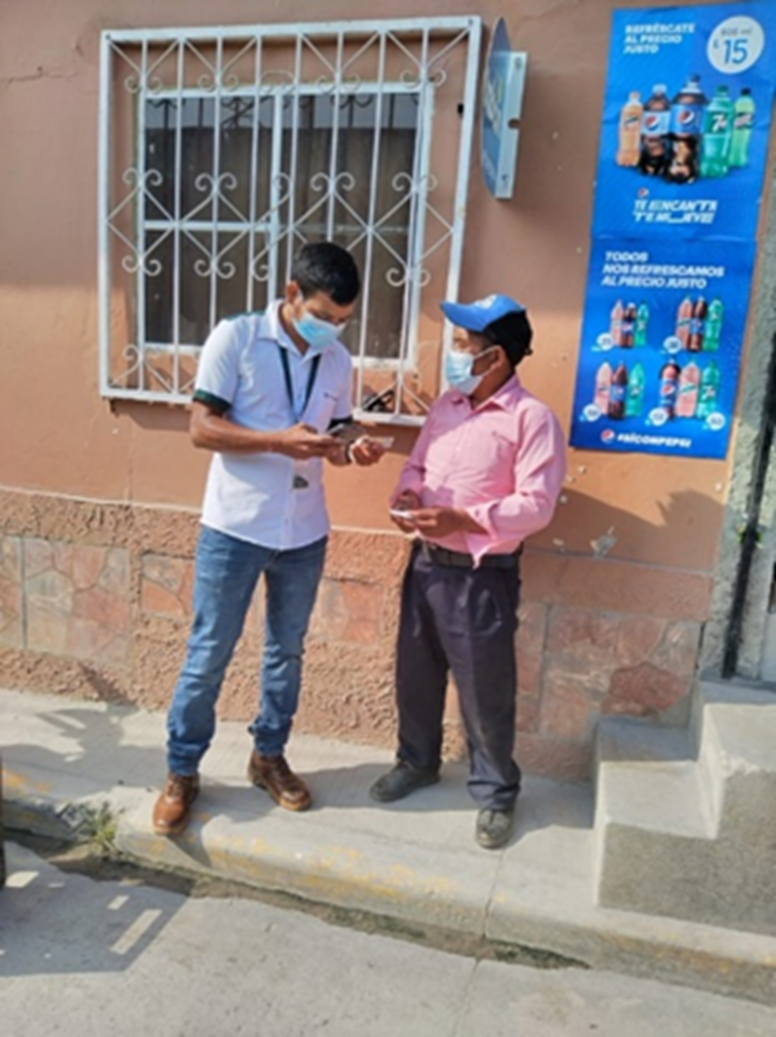ADA and REDCAMIF improve the quality of life of low-income people in Central America and the Caribbean

Within the framework of the ADA-REDCAMIF II (2018-2021) program titled “Strengthening the added social value of microfinance in the region of Central America and Dominican Republic", 31 microfinance institutions have received support either to develop inclusive financial products and services or to use technologies as a means of facilitating client access to their services.
This month, we are focusing on two projects carried out by two microfinance institutions: Financiera FDL in Nicaragua, which has developed a financial product combined with technical assistance to implement forest grazing systems in land owned by stockbreeders, and PILARH OPDF in Honduras, which has developed an app for managing microcredits.
Financiera FDL Nicaragua develops sustainable financial product combined with technical assistance for stockbreeders
The Central American region is exposed to greater climate risks due to its geographical location and a lack of capacity and resources at the institutional level to mitigate the risk of disasters and help adaptation to climate change. For this reason, ADA and REDCAMIF are carrying out a project to design and implement financial services with green added value in the region, with the aim of promoting access to climate change adaptation and mitigation measures for low-income populations in the region.
In this respect, microfinance institutions such as Financiera FDL in Nicaragua are essential, due to their role in achieving concrete results that benefit the most vulnerable people in the region. Financiera FDL is carrying out actions aimed at mitigation and adaptation to climate change among peasant farmer/stockbreeder communities in the southern agricultural area of the country. Part of this initiative involves the implementation of a financial product to finance working capital combined with technical assistance to implement forest grazing systems on stockbreeders’ land, a more sustainable model of agricultural production that maintains an atmosphere that guarantees families’ livelihoods, improves productivity and reduces vulnerability to climate change, helps to reduce soil degradation and optimizes the natural resources of the land.
Results of the financial product (as of March 2022)
- 214 credits granted: 45 women (21%) and 169 men (79%), 73 of them in the stockbreeding area called “Milky Way”.
- Average sum: US$ 4,554.58.
Results of the technical assistance
- Improvement of pastureland;
- Protection of water sources;
- Introduction of trees into meadows;
- Better handling of chemical containers;
- Estimates of greenhouse gas emissions and carbon sink capacity.
Furthermore, in the first trimester of 2022, 1,225 producers received technical assistance to implement the following environmental practices:
- Electric fences (34,5%);
- Protection of water sources (23,8%);
- Conservation of forest areas (13,1%);
- Handling of chemical containers (10,7%);
- Diversification of crops (6%);
- Genetic improvement (3,6%);
- Rotation of meadows with/without electric fences (2,4%);
- Establishment of new varieties of pasture grass (2,4%);
- Pastures with scattered trees (1,2%);
- Distribution of water in meadows and/or watering holes (1,2%);
- Rainwater collection (1,2%).
Reading example: 34.5% of producers received technical assistance on how to install electric fences in their farms.
In the first trimester of 2022 Financiera FDL trained 318 producers in a number of areas, including:
- Supply of mineral salts and administration of injectable minerals;
- Sanitary procedures according to animal health calendars (oral deparasitisation for example) ;
- Management of the 'Vaca de la Reina' breed the first 100 days of suckling;
- Livestock records that include dates of birth, weight of calf, name of mother and calf;
- Feeding alternatives in summer: through the promotion of nutrition blocks, silos and supplementing with cut pastures;
- Treatment of different bovine diseases when making a visit;
- Management of cut pastures or grass forage storage.
The chatbot Silvio as a new digital service for technical assistance
Financiera FDL launched an innovative model of technical assistance that has been active since late 2021 and is available on WhatsApp. The institution provides clients with the digital tools required to adopt ‘smart’ climate practices and offers them on-the-spot 24/7 technical advice on growing coffee and cocoa and stockbreeding.


PILARH OPDF in Honduras develops an app for the management of microcredits
The MFI "Proyectos e Iniciativas Locales para el Autodesarrollo Regional de Honduras" (PILARH OPDF) has foreseen the digitalisation of its procedures in its strategic plan to 2023. With this in mind, it applied in 2021 to a call for expressions of interest launched by ADA - REDCAMIF in order to implement rapid implementation digital transformation projects called "Quick Wins" (low effort, high impact). These projects aimed at smartly digitising the MFIs' business processes, developing their business, but also new products to improve their customers' experience.
PILARH OPDF's project consisted of developing and implementing a mobile application called "APP" for the management of clients' microloans, which has several functionalities and advantages for both MFI loan officers and clients. It is designed to manage the financial activity of the institution through a central processing system that covers the needs of the headquarters, branches or agencies. The application also includes client and product-oriented functionalities.
Despite the short period of implementation on the ground during the pilot phase, the 2021 results show that there has been a general improvement in productivity and response times to clients. The institution expects that 100% of its personnel will use the app by the end of 2022.
Functions of the application
- Input and update of client information in the field, both online and offline
- Performance of the credit process, from the initial request to payment, achieving greater agility in the administrative steps
- Better route planning: the app assigns routes to advisers so that they can visit clients efficiently
- Better management of money collection: the app is equipped to carry out consultations on loans, showing basic and financial information of clients
- Storage of GPS coordinates of clients’ homes and businesses
- Document and image capture, as back-up for creditworthiness assessment.
Benefits since its implementation in June 2021
- Convenient for clients, as it is no longer necessary to travel to the institution’s offices to carry out administrative procedures. This reduces the risk of situations of insecurity while reducing travel expenses at the same time
- Greater agility: the average time for disbursement went from 5 days in June 2021 to one day in March 2022
- Greater weekly productivity per adviser, from 4 credits in June 2021 to 12 in March 2022
- Significant increase in requests for credit received: 286% between September 2021 and March 2022
- High percentage of effectiveness: 53% of credit requests become paid-out credits.


In 2020-2021 eighteen microfinance institutions in Central America and the Dominican Republic have received support in the implementation of a range of technological tools that directly affect the clients of these institutions. Through these projects the microfinance institutions have widened their reach to cover more clients while offering higher-quality services and improving their clients’ experience.